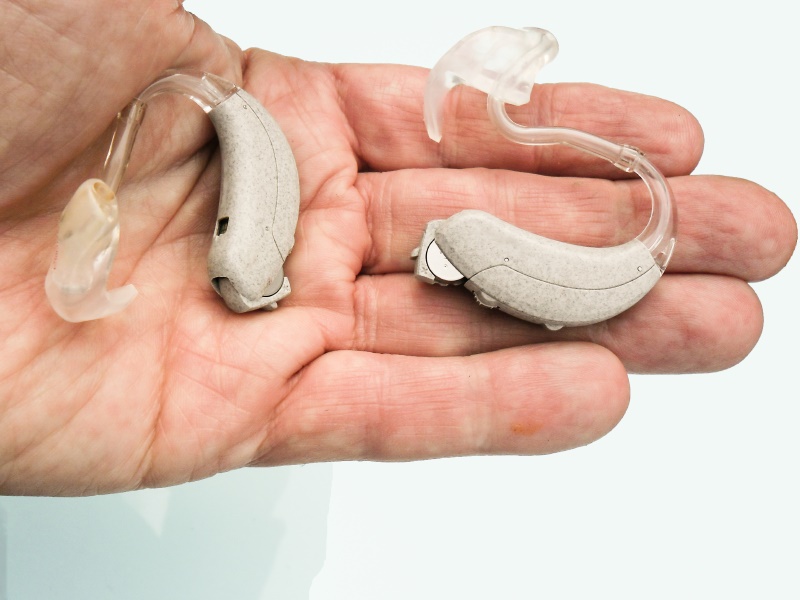
To keep your hearing aids functioning properly for years to come, you’ll want to learn about proper care and maintenance. And while it may feel like an extra burden, with the right approach your hearing aid care will become effortless and automatic.
The key is building effective habits.
If you incorporate your hearing aid care into your everyday and nightly routines, before long it won’t feel like any extra work at all.
Below are a few tips for the day-to-day care of your hearing aids (which your hearing specialist will also go over with you):
Clean your hearing aids daily – Aim to incorporate your hearing aid cleansing into your evening routine, so it becomes as automatic as brushing your teeth. Daily cleaning is critical because daily hearing aid cleaning can prevent the collection of earwax, dirt, and dust into the different parts of the hearing aid, which can cause distorted sound over time.
You’ll want to clean your hearing aid with a soft, dry cloth, while averting any kind of fluids that could destroy the hearing aid electronics. Check with your hearing professional for specialized guidance on cleaning each type of hearing aid.
You might also consider buying a hearing aid sanitizer, which utilizes ultraviolet light to safely and thoroughly kill hazardous pathogens. Hearing aid cleaning kits are also obtainable with all of the instruments you’ll need to safely and securely clean the device without causing damage to the electronics.
Check the batteries – Hearing aid batteries should always be tested and replaced frequently to ensure top hearing aid functionality. Consider using a battery tester each morning to ensure you have an adequate amount of power for the remainder of the day, and keep a spare set of batteries on hand.
Before bedtime, when your hearing aids are not being used, turn them off and store them in a cool, dry location with the battery door open.
Store your hearing aids in a safe place – With respect to storage, you’ll want to try to remember three things:
- Keep the hearing aids away from moisture. In other words, storing your hearing aids in the bathroom is probably a bad idea.
- Try to avoid subjecting the hearing aids—and hearing aid batteries—to extremes in temperature. You’ll want to store your hearing aids in a cool, dry place.
- Avoid storing your hearing aids out in the open, where they can become damaged.
We suggest keeping your hearing aids in a case or drying kit inside the drawer of a bedroom side table. This will safeguard the hearing aids from moisture, temperature extremes, and damage from being pushed off the table.
In addition, always remove your hearing aids prior to taking a shower, swimming, or using a hair dryer or hair spray.
Maintain ear hygiene – Even though earwax has many beneficial attributes, like protection and lubrication of the ear canal, it can wreak havoc on hearing aids. As it gets lodged within the hearing aid components, sound can become distorted.
Make sure you’re keeping up appropriate ear hygiene, and if you have too much earwax, think about booking a visit with a professional.
Properly insert your hearing aids – When putting in your hearing aids, lean over a table or soft surface in the event that the hearing aids fall. Hearing aids come with vulnerable electronics, so a fall on a hard surface could cause severe damage.
Even with meticulous cleaning and maintenance, after a while the hearing aid will call for more detailed cleaning or repair.
To assure that you continue to achieve the best sound possible, we recommend getting your hearing aids professionally cleaned by a hearing professional a minimum of two times per year.
Hearing care professionals can provide you with a deep cleaning, a tune-up, and will sometimes replace parts. Staying on top of this routine maintenance will increase the life of your hearing aids and will ensure that you get the best sound.
